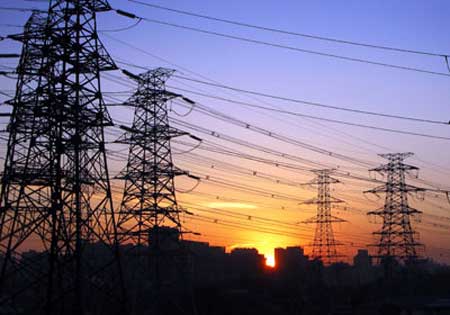China's energy worries
- By Geoffrey Murray
 0 Comment(s)
0 Comment(s) Print
Print E-mail
China.org.cn, August 24, 2011
E-mail
China.org.cn, August 24, 2011
In the 1990s, a common feature of Chinese life was the power blackout.
In my office, we carefully saved work every few minutes for fear of losing edited files as the computer screen went blank (no battery-operated laptops in those days); sometimes, we'd be sent home early or told to take a day off as there was no power. Cycling at night on streets with no lighting was a common hazard.
|
|
|
China has made huge strides in power generation capacity. [Photo: Xinhua] |
Since then, China has made huge strides in power generation capacity and we've become used to nighttime streets as bright as day, reliable air conditioning and the numerous benefits of labor-saving electrical devices.
However, the country remains on a constant knife-edge in balancing supply and demand.
The national grid has given priority to maintaining electricity supplies for residential customers, particularly in urban area (while raising prices for industrial users). But outside the big cities, some homes have trouble using the more than 100 million air-conditioners, washing machines, refrigerators and other appliances sold since the start of 2009 - aided by government subsidies aimed at narrowing the gap in living standards between city residents and the rest of the country.
This has revealed some structural problems. Power consumption in the first quarter of this year grew 15 percent from the same period of 2010. Coal accounts for 77 percent of the generation capacity, hydropower 20 percent and nuclear and renewable energy (wind, solar etc) the rest. There is a long-range program of adjustment, moving away from environment-threatening coal to "cleaner" sources. But that's going to take a long time to implement.
Earlier this year, fears were expressed that blackouts and power rationing would hurt an economy already slowing down. Some officials even predicted a return to the dark days of 2004 when the prosperous east coast provinces and the hydropower-dependent southwest faced daily blackouts.
Fortunately, this grim scenario was avoided – but for how long?
Without doubt, the country has an insatiable appetite for electricity, but where is the additional power generating capacity to come from?







Go to Forum >>0 Comment(s)